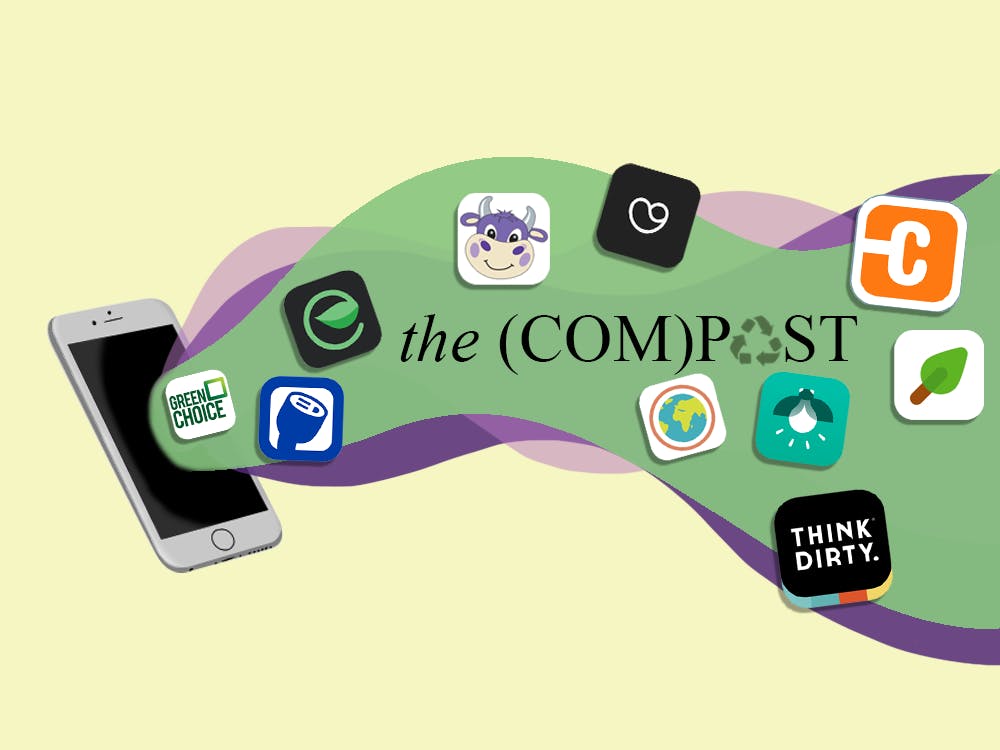Most of us have far more apps on our phones than we actually use. More often than not, we gravitate towards the same couple of apps that engage or help us the most. There are a growing number of sustainability apps that tackle everything from your daily transport emissions, to food waste, to the ingredients used in common products. In order to avoid another apps folder that you’re unlikely to use, here’s a list of sustainability apps based on personality types so you can find the perfect ones for you.
The Fashionista: Good On You
Good On You allows users to discover ethical clothing brands and see how their favorite brands measure up. The app rates brands on scales for three categories (people, planet and animals) and provides an analysis of their scoring for that brand. Brands are rated on a scale between We Avoid (1) to Great (5). Good On You also posts interesting and useful articles, such as “Natural Alternatives for a Greener and Cleaner Home” and “The Ethical Guide to Dressing Like a Parisienne.”
The Avid Internet User: Ecosia
Who knew planting a tree could be as simple as doing a Google search? Ecosia uses the ad revenue generated from Google searches to plant trees where they’re needed most. The app shows each of the places where trees are planted and who they partner with to make it happen. They even post their monthly financial reports and tree planting receipts for transparency. Ecosia can be added as a Chrome extension.
The Foodie: Green Choice
Green Choice allows users to make informed decisions about their food and beverage options. The app has evaluated over 60,000 products (and counting) for their safety, processing concerns, nutritional value and environmental impact. Users can search or scan the barcode of products to see if they’ve been analyzed by Green Choice. Users can also take photos of their receipts to track their GreenScore® and redeem cool prizes like free yoga or spin classes, massages, personal training and more.
The Competitor: JouleBug
JouleBug is an app that has a variety of easy everyday challenges, such as taking public transport, opening windows instead of using the A/C and using reusable bottles. When users complete a task, they press a little buzz button that collects points. Users can see others’ points and even compete in locally-based challenges to see who can earn the most points. This app is a great tool for measuring personal (or organizational) sustainability progress.
The Data Lover: EcoCred and LiveGreen
EcoCred and LiveGreen are two data-driven apps that allow users to measure their carbon footprint and complete actions to reduce it. Using the personalized carbon footprint info,
EcoCred suggests a list of habits users can incorporate to reduce their carbon footprint. If users do a “habit,” the app shows the amount of carbon they’re reducing. Completing habits allows users to earn EcoCRED, which can later be redeemed for cool rewards like Whole Foods gift cards, carbon offsets, bamboo cutlery sets and more.
Similarly, LiveGreen also helps people track their daily emissions and learn how to reduce them. Users can track meals and trips in mere seconds. LiveGreen also offers users the ability to be carbon neutral through payment plans which automatically plants trees for every metric ton of carbon emitted. You can even see photos and locations of your trees on a map.
The Clean Freak: Think Dirty
Think Dirty helps users understand the ingredients that go into beauty, personal and household products. Simply scan product barcodes and Think Dirty gives understandable info on the product and even suggests cleaner alternatives. There’s even the option to subscribe to monthly clean beauty boxes.
The Veg Head: Happy Cow
Happy Cow lists vegetarian and vegan friendly restaurants in cities around the world. One of the most immediate ways people can support sustainability is through vegetarianism or veganism or even just eating less meat. Why? Animal agriculture puts a heavy load on the earth’s land, water and energy resources. Data suggests animal agriculture is the second-largest contributor to human-made greenhouse gas emissions after fossil fuels. With Happy Cow, users can plug in a zip code or use the “current location” function and immediately see a generated list of the veg restaurants closest to them and how other users have rated them.
Bonus: If you have an electric car: ChargePoint or PlugShare can direct you to the nearest charging station.
dharvey@theeagleonline.com





